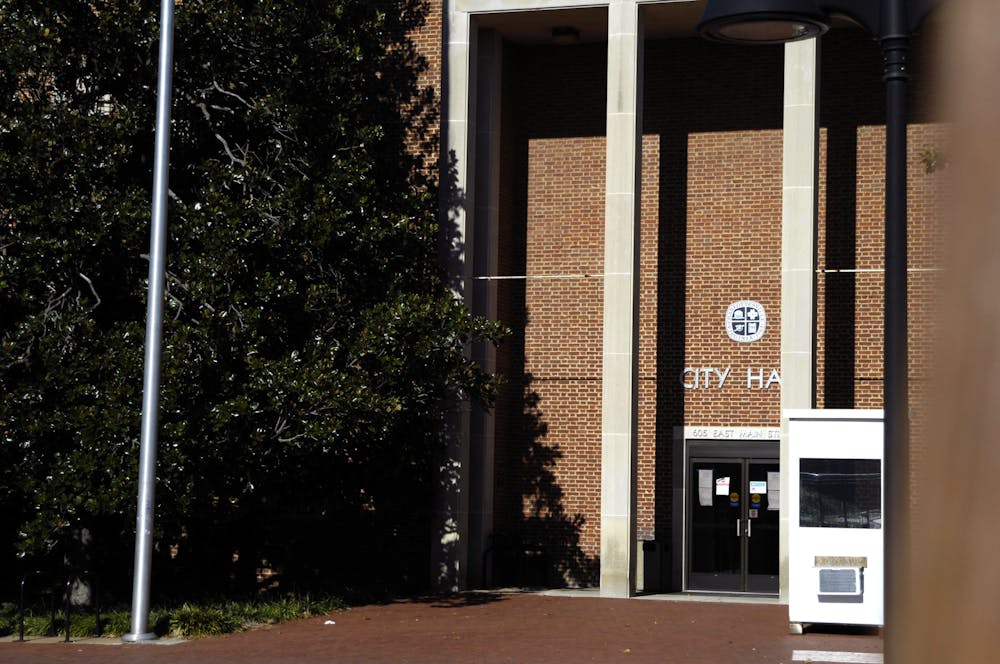Charlottesville City Council unanimously voted to approve implementation of a new pay structure and compensation policy for all City employees. Through the new policy, which was approved Aug. 22, Council is focusing on increasing pay equity and transparency. Under the plan, city employees will see 25 new pay grades, ranging between approximately $16 and $118 per hour.
The new pay structure will cost an estimated $10 million, more than was anticipated in a city-wide compensation study presented to the City Council in April, which suggested a maximum budget of $6.6 million. The study included data from peer comparisons of other cities, including Alexandria, Richmond and Williamsburg, and found Charlottesville pay rates are slightly less competitive.
Charlottesville City Manager Sam Sanders said that recruiting and retaining Charlottesville employees has been a challenge. The new pay structure is a response in part to the city’s difficulty in retaining and attracting employees to its workforce. At the beginning of the year, 20 percent – or 200 – of 1,000 newly approved jobs remained unfilled.
“We want to have as happy a workforce as we can achieve, and we want to be competitive in the market so that we can recruit and retain employees,” Sanders said.
Though a national issue, the shortage of school bus drivers is one driving factor in creating the new pay structure. Following the approval of Charlottesville’s collective bargaining ordinance last year, many city employees are beginning to unionize.
By increasing wages, the Council hopes to incentivize workers and ensure competitive salaries within the labor market.
“We have already found in some instances that our positions don't pay high enough and they'll go somewhere else instead,” Sanders said. “My priority is that I want the City of Charlottesville to be an employer of choice. People will want to work here.”
Sanders — who has only held the position of City Manager a short time— said the term he used to refer to the new pay structure was “modernizing.” Sanders was appointed in July, officially filling the temporary role held by interim city manager Michael Rogers effective August 1st.
The new structure includes a difference of 10 percent between the median income of each grade. Previously, when the city had almost double that number of pay grades, management was more difficult.
“Over the course of the full implementation, [the policy] will probably touch everyone,” Sanders said. “Not everyone will get a pay raise, but no one will get a pay reduction.”
The budget as well as the timeline for the new pay structure remains somewhat uncertain, as Council expects to make new discoveries throughout the process of implementation. According to Sanders, implementing the new policy will occur in stages, and some employees will be impacted in the early steps.
“It’s at least a three-year process,” Sanders said. “It could end up being more once we get more of the details that we're needing, and then identify what the true costs are.”
Community feedback to the policy has been varied. While some external comments have been positive, opinions internal to the organization are more diverse.
“I’ve heard, constantly, references to ‘Hurry up, get it right,” Sanders said. “‘Thank you for explaining this to us. We hope you’re going to do all the things that you say you’re going to do,’”
The Council will convene today at 5 p.m. for a joint meeting with the city’s Planning Commission.







